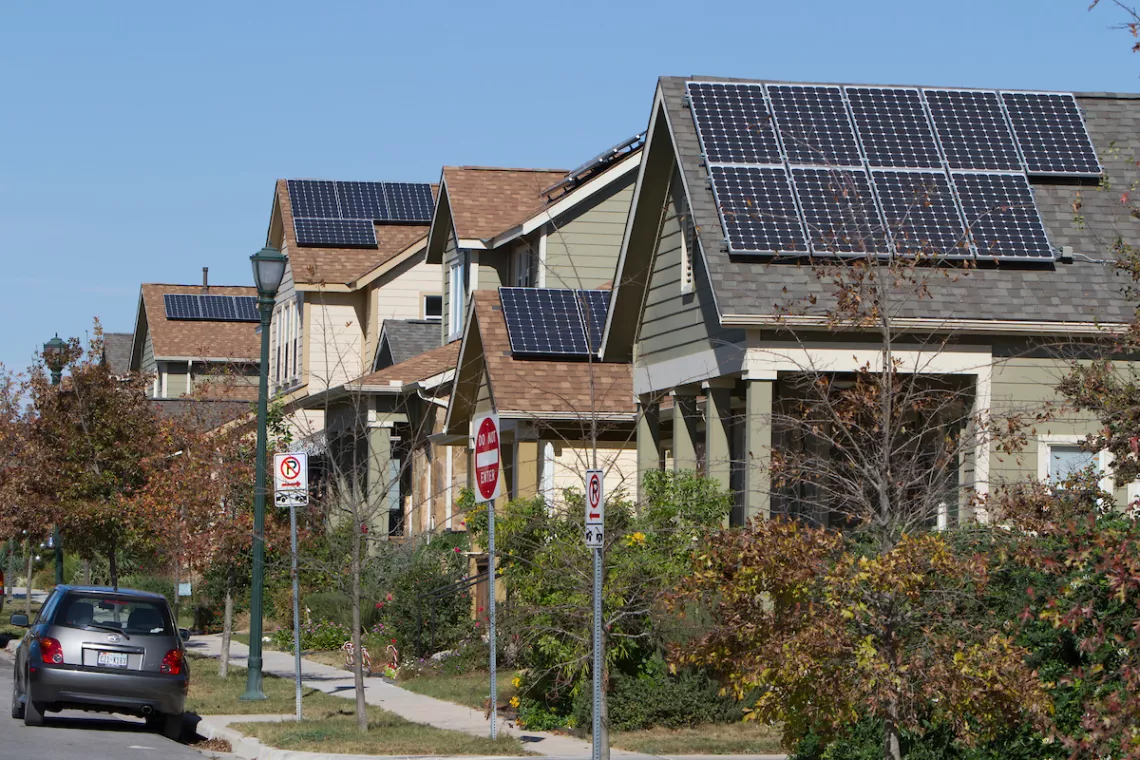
Photo by Al Braden
By Cyrus Reed
As wildfires, drought, record electric demand, and heat plague Texas this summer, and potential hurricanes and floods loom on the horizon, officials and stakeholders in Houston are doing something to prepare for the future - update their building construction codes.
Cities in Texas still have the right to update a number of local construction codes for both residential and commercial property. Newer codes are developed through national organizations, including the International Code Council, but it is up to states and localities whether to adopt or modify them. Currently, the City of Houston is considering a wholesale adoption of the 2021 International Code Council and 2021 Uniform Code for residential and commercial construction, with a public hearing this week at the Transportation, Technology, and Infrastructure (TTI) Committee, a subcommittee of the Houston City Council.
Assuming that committee approves the proposal, the proposal would go to the full council in October and the codes would become effective in 2024. To be clear, assuming adoption, the codes will not magically make all construction in Houston climate-resilient, but they will vastly improve future buildings' ability to withstand more extreme weather, while also saving energy, water, gas, and money for consumers.
What’s in the proposal? Is it good?
Building codes are complicated but to make it simple, the City of Houston is planning to adopt the latest published (2021) versions of the overall commercial building code, the residential building code, the fire code, the energy code, the plumbing code, the mechanical code, and swimming pool code (yes that really is a thing) among others. In addition, and importantly, Houston is also planning to adopt a new code for construction known as the American Society of Civil Engineers 7-22, a suite of requirements to make buildings more resistant to high winds, floods, and other extreme weather conditions. If adopted, the City of Houston would be the first in Texas to adopt this ASCE standard.
In addition, the adoption of the latest energy code and latest Uniform Plumbing Code will ensure that buildings need less energy and water which is good for our consumers and the climate, and also help support jobs as better windows, lighting, and insulation are required.
How has the Sierra Club participated in the code development process?
The Houston subcommittee meeting this week is not the first public meeting on these new codes, but the culmination of over a year of meetings. Sierra Club participated in both a technical working group on the energy code as well as a community oversight committee that ultimately blessed each working group committee recommendations. As a member of the committee, Sierra Club was able to make specific recommendations or amendments to the proposed code.
While the State of Texas has thus far failed to adopt the 2021 energy codes (known officially as the International Energy Conservation Code), seeing large cities like Houston adopt the 2021 IECC will mean new buildings will be 5 to 10 percent more energy efficient than buildings built to the previous 2015 IECC code. The cities of San Antonio, Austin, and Dallas have already adopted the 2021 IECC.
While the Energy Systems Laboratory in Texas has recommended that the State of Texas adopt the 2021 IECC as the minimum energy code in Texas, a statutory conflict has prevented the state from moving forward. Last legislative session, we tried to fix that loophole through passage of SB 2453 by Sen. Jose Menéndez. Unfortunately, Gov. Greg Abbott vetoed the bill. We have asked the Governor to add the issue to a future special session.
Did we get all of our amendments accepted?
No. The Sierra Club was advocating not only for adoption of the latest energy code, but also adoption of some currently voluntary appendices known as the Solar-Ready and the EV (Electric Vehicle)-Ready appendix. The basic idea is that as new buildings are built, they should be built in a way that it will be easy to add solar panels and electric vehicle charging should the occupants want to make those changes. It is much less expensive to design buildings in a way to easily incorporate these new technologies, than having to retrofit buildings later.
While the City of Houston and the stakeholder process agreed to require that new homes be solar-ready, they did not agree to make commercial buildings and also did not agree to adopt the Electric Vehicle-Ready appendix as a mandatory requirement. Still, they agreed to publish the appendices so that developers who wish to certify their buildings as EV-Ready or Solar-Ready could do so. The Sierra Club is asking the Houston City Council to make these appendices mandatory, although if there is not enough support, we have suggested the City of Houston consider regulatory or financial incentives to help builders get there. See here for a full copy of our comments.
For information about the City of Houston code process, see here.
For information about the TTI meeting, see here.